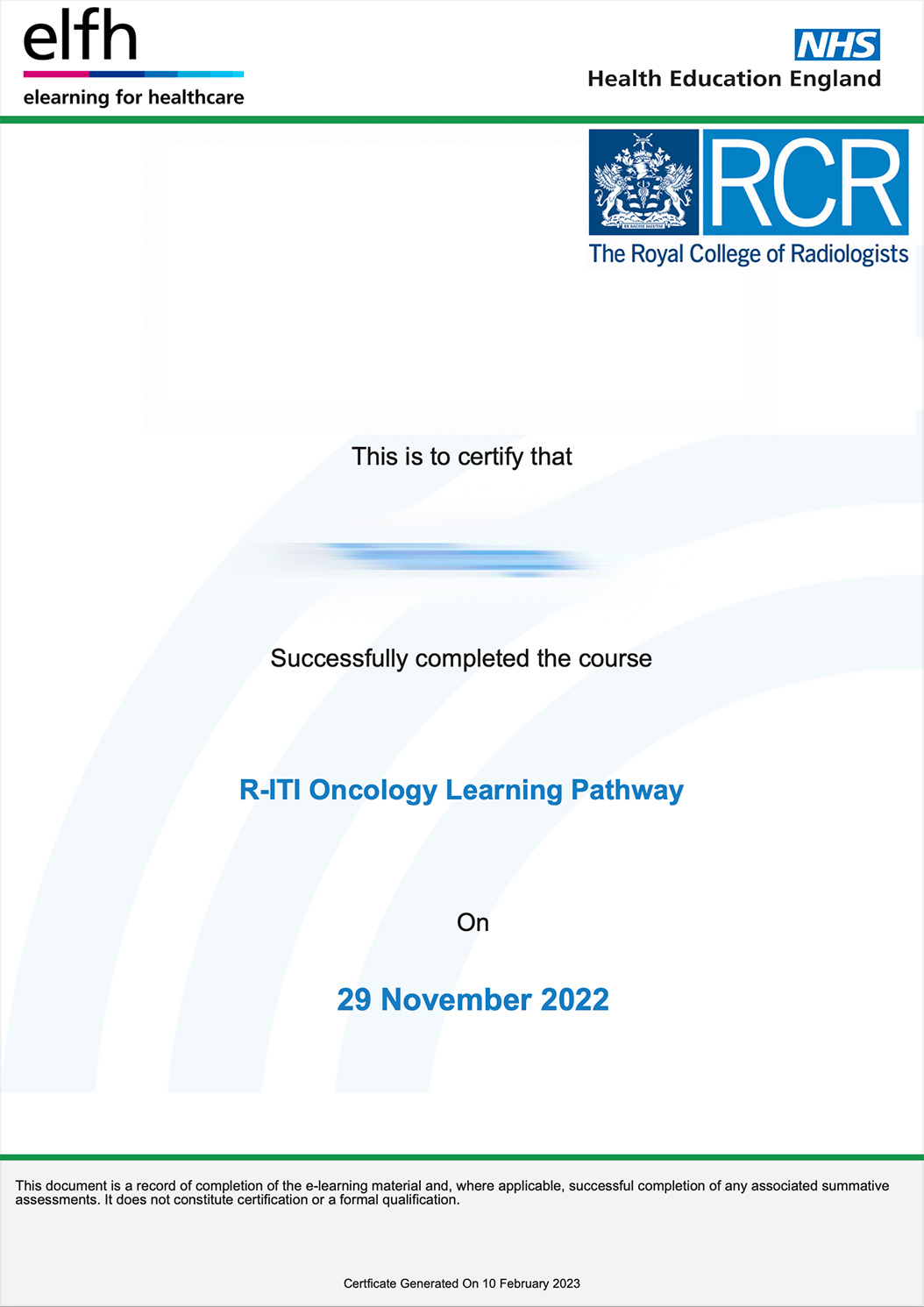
About Course
Breast Radiology
This course covers various issues related to breast imaging.
Suitable for healthcare professionals globally
This radiology course is available online so you can study at your own pace, in your own time. It has set a gold standard for elearning in healthcare in the UK and it is now available to healthcare professional globally.
The programme has been developed in the UK by The Royal College of Radiologists and NHS England elearning for healthcare.
Sample Certificate

